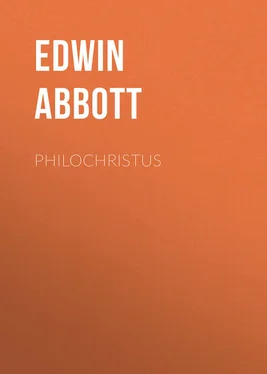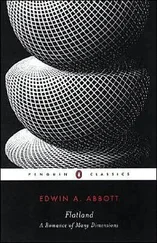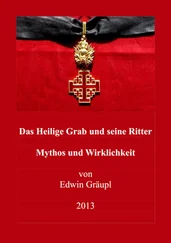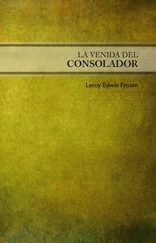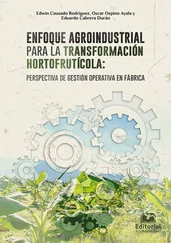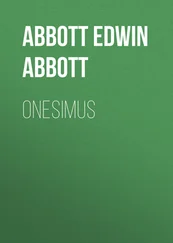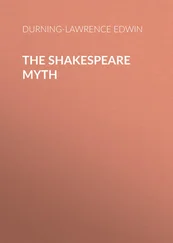Edwin Abbott - Philochristus
Здесь есть возможность читать онлайн «Edwin Abbott - Philochristus» — ознакомительный отрывок электронной книги совершенно бесплатно, а после прочтения отрывка купить полную версию. В некоторых случаях можно слушать аудио, скачать через торрент в формате fb2 и присутствует краткое содержание. Жанр: foreign_antique, foreign_prose, на английском языке. Описание произведения, (предисловие) а так же отзывы посетителей доступны на портале библиотеки ЛибКат.
- Название:Philochristus
- Автор:
- Жанр:
- Год:неизвестен
- ISBN:нет данных
- Рейтинг книги:5 / 5. Голосов: 1
-
Избранное:Добавить в избранное
- Отзывы:
-
Ваша оценка:
- 100
- 1
- 2
- 3
- 4
- 5
Philochristus: краткое содержание, описание и аннотация
Предлагаем к чтению аннотацию, описание, краткое содержание или предисловие (зависит от того, что написал сам автор книги «Philochristus»). Если вы не нашли необходимую информацию о книге — напишите в комментариях, мы постараемся отыскать её.
Philochristus — читать онлайн ознакомительный отрывок
Ниже представлен текст книги, разбитый по страницам. Система сохранения места последней прочитанной страницы, позволяет с удобством читать онлайн бесплатно книгу «Philochristus», без необходимости каждый раз заново искать на чём Вы остановились. Поставьте закладку, и сможете в любой момент перейти на страницу, на которой закончили чтение.
Интервал:
Закладка:
Hereat there was a general applause; but he, not heeding it, continued, “If ye be of one mind with me that the hour is come to smite with the sword; then how and where? I say, let certain of us join ourselves to the army of the Tetrarch, which even now maketh ready to march against Aretas. Thereby we shall gain experience of war, and, as I hope, win over some of the army to our side. As for the tyrant’s guards, the Gauls, Germans, and Thracians, they are bought with his money, so that we have no hope of them; but by far the larger part of the army consisteth of our own countrymen; and many of them may revolt on our side; as they did with Simon against Archelaus, and some also helped Athronges, whom men call a rebel. Meantime, let the rest of us make ready our friends in our several cities to take up arms next Passover. They in Jerusalem will attack the garrison there, others break open the armoury at Sepphoris and in Masada. On the same day our countrymen in Joppa, Cæsarea, and Ptolemais will attack and drive out the Greeks. Then will rise a flame of war from one end of Syria to the other. Our rich men, even the Herodians, seeing all the people to be of one mind, will stand with us; and having Israel with us as one man, doing battle for the name of the true God against the gods of the Gentiles, doubt not but we shall have also the sword of the Lord on our side, as in the days of Gideon.”
The applause was now yet louder than before; and at first it seemed as though the whole assembly were minded with one consent to obey the words of John the son of Judas of Galilee. But one of the companions of Hezekiah, Levi by name, an old man and grey-bearded, rose up presently and said that the hour had not yet arrived, because, said he, the Sabbath was not yet duly observed, and the wrath of the Lord still weighed upon Israel. Then Barabbas answered with indignation, saying that it was only the rich and delicate, or else they that were enfeebled with old age, who were thus content to be the slaves of idolaters.
Upon this Hezekiah the Scribe stood up to speak: “These young men of Galilee gladly make mention of the old times of Gideon and David, yet do they not themselves imitate the old times in having respect unto old age. For even though Levi were old and enfeebled, yet what saith the Tradition? ‘Old age, though it be broken, is yet to be held in reverence, even as the broken tables of the Law were kept in the ark of the Lord.’ But what meaneth this youth of Jotapata, when he calleth my friend and companion Levi, the son of Ezra, delicate or enfeebled; and all because the advice of Levi is not the advice of Barabbas? Hear, O ye young men of Galilee, the words of Levi are true: the hour hath not yet arrived. ‘What hindereth?’ ye ask. I answer in the words of the Wise, ‘The dough in the leaven.’
“I also, like John the son of Judas, will give proof of my words; but do ye, being Galileans, incline your ears to the saying of a Galilean, according to the proverb, ‘A Galilean said When the shepherd is angry with his flock, he appointeth for their leader a blind bell-wether.’ Note therefore the leaders of Israel, which have risen up against the Romans of late. Hath God sent them in anger or in mercy? Have they been blind bell-wethers, or endowed with sight? I say naught of Judas of Gamala, in the presence of his sons: but Judas the son of the robber Hezekiah, how went it with him? He thought in his heart that he was a second Joshua, and that the waters of Jordan would part at his word. But who knoweth not his miserable end? As also the end of Athronges: who aimed at the kingdom because, forsooth, he was in stature a second Saul. Simon also, the slave of Herod the king, when he had shewn forth his valour by destroying the king’s palace at Jericho, became a portion for foxes at Amathus, and his head was cast before the feet of the conqueror. Answer then unto me, ye young men. Hath the Lord sent Simon the slave, and Athronges the shepherd, and Judas the son of the robber, in mercy or in wrath?
“Nay, but since shame hindereth your answering, I, even I, a man of Judæa, will answer for you, according as it is said, ‘From Judæa grain, from Galilee straw, from Peræa chaff.’ The Lord sent these men in wrath. All these were blind bell-wethers, blinded by the lust of fame or gain. But do ye therefore wait for the true leaders whom the Lord your God will send? Leave it to this young man of Jotapata to follow any knave that may chance to call himself the Redeemer of Israel because, forsooth, he may be a head taller than his neighbours, or may have dreamed a dream, or may perchance have gained some knowledge of herbs or unclean spirits.
“Even now they say there hath appeared in the southern parts (so I heard, coming but now from Jericho) one John the son of Zachariah, concerning whom I judge (if he be indeed a true prophet and no deceiver) that he is either the prophet spoken of by Moses, or else Elias. For that Elias is to come again we all know, because it is so written; and that the prophet like unto Moses must needs appear, this also the Scriptures tell us: but that other prophets should appear is not written, neither is it likely; for the age of prophets is past. But whether this John be Elias or whatever else, meet it is that we go to him; for he may perchance reveal to us what it is our wisdom to do. If ye ask ‘What shall be the sign of the true prophet?’: I answer, it is written in our traditions, ‘A false prophet may shew signs on earth and in the deep; but a sign from heaven he cannot shew.’ Wait therefore till the sign from heaven shall be vouchsafed, revealing the true Prophet, whom it will be our wisdom to obey, and for whom (during this present) it is our wisdom to wait.”
When Hezekiah had made an end of speaking, James the son of Judas was sore displeased at his words, and made as if he would have spoken in answer; but John (who was of a gentler disposition) prevented his brother, and said that Hezekiah gave good counsel. For he, like the rest of us, had been moved by the mention of John the Prophet. So in the end it was determined according to the words of Hezekiah the Scribe; and we brake up without resolving anything further, except that we would go straightway, so many of us as conveniently could, to Bethany beyond Jordan, where the prophet was baptizing. But on the morrow and on the day after, when I spake to my friends and acquaintance concerning John the son of Zachariah, it was a marvel to see how greatly the hearts of all men were stirred at the thought of a new prophet in Israel. For that after so many hundreds of years a prophet should arise in Israel (none having prophesied since the time of Malachi, the last of the prophets, more than four hundred years ago) this seemed a marvellous thing and well nigh impossible, and almost as if a man should rise again from the dead. For the prophets were counted as it were dead and out of mind in Israel, meet to be reverenced for their past words, but not to be hoped for in the time to come. For this cause were we much moved by the mention of the name of John the son of Zachariah. And as the Prophet Elias from the top of Carmel looking out into the Great Sea and discerning a cloud no bigger than a man’s hand, foretold the imminent storm, so did all we in Galilee, on the first breath of the rumour of the coming of a prophet, begin to forebode in our hearts of the coming of one that should be no common prophet; but, in all likelihood, Elias from the dead; or else one greater than Moses, to give us perchance a new Law and a new Kingdom.
CHAPTER III
On the fourth day, I set out in company with Baruch my cousin, the son of Manasseh, my father’s brother, intending to go to Capernaum, and thence to take ship for Gamala, where we were to meet James and John the sons of Judas of Galilee; and so to journey all together to Bethany, where the prophet was. When we were come to Capernaum, we tarried two days in the house of Manasseh: and the second day was the Sabbath. Now the house of Manasseh was nigh unto the wharf, so that nothing stood between it and the lake.
Читать дальшеИнтервал:
Закладка:
Похожие книги на «Philochristus»
Представляем Вашему вниманию похожие книги на «Philochristus» списком для выбора. Мы отобрали схожую по названию и смыслу литературу в надежде предоставить читателям больше вариантов отыскать новые, интересные, ещё непрочитанные произведения.
Обсуждение, отзывы о книге «Philochristus» и просто собственные мнения читателей. Оставьте ваши комментарии, напишите, что Вы думаете о произведении, его смысле или главных героях. Укажите что конкретно понравилось, а что нет, и почему Вы так считаете.
